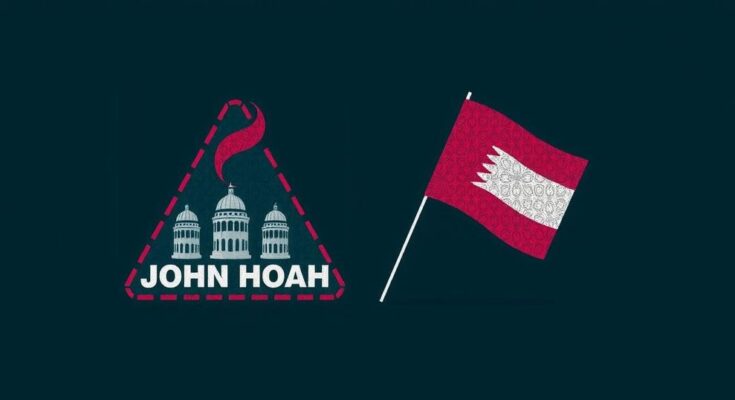In an interview with The Jerusalem Post, Dr. Einat Wilf criticized Qatar’s complicity in the Israeli-Palestinian conflict, arguing it plays a destructive role by supporting Hamas. She condemned the normalization of hostage negotiations and urged Israel to recognize Qatar as an enemy rather than a mediator. Dr. Wilf highlighted the importance of public pressure to alter perceptions and policy towards Qatar, emphasizing its detrimental effects on regional stability.
In an extensive interview with The Jerusalem Post, Dr. Einat Wilf, a prominent Israeli political scientist and former Knesset member, articulated her concerns regarding Qatar’s complicity in the Israeli-Palestinian conflict. Dr. Wilf contended that Qatar is not merely a mediator but a significant ally of Hamas, bolstering its military capabilities while undermining Israeli security. She asserted, “Qatar is not our friend. Qatar and Hamas are one and the same,” emphasizing Qatar’s role in financing Hamas and reinforcing its governance in Gaza, all while the consequences of their actions remain insufficiently addressed. Dr. Wilf criticized the normalization of hostage negotiations stemming from the Hamas kidnappings, stating that this approach only serves to legitimize Qatar’s position and embolden Hamas. Rather than accepting Qatar as a mediator, she proposed that Israel should have recognized Qatar as an enemy state and exerted pressure to sever ties with Hamas. She expressed frustration over the failures of Israeli leadership to mobilize international opinion against Qatar, which she believes is instrumental in the ongoing hostage crisis. Further, she described Qatar’s media outlet, Al Jazeera, as part of its strategy to perpetuate anti-Israel sentiment, arguing that its influence in Western media has detrimental effects on perceptions of Israel. Dr. Wilf noted that Qatar’s actions are not in Israel’s interest and outlined a framework for effective advocacy against Qatari interference, underscoring the importance of public pressure in shaping policy. She lamented that Israel has given Qatar undue legitimacy, resulting in a failure to combat the threats posed by terrorist organizations like Hamas.
The context of Dr. Einat Wilf’s assertions pivots on the complex geopolitical dynamics of the Israeli-Palestinian conflict, particularly regarding Qatar’s role. Qatar has been historically viewed as a mediator in the conflict, with considerable influence over Hamas. However, Dr. Wilf refutes this notion, framing Qatar’s extensive financial and military support for Hamas as a key factor in perpetuating violence and instability. Her remarks underscore the critical need for Israel to reassess its strategic approach to Qatar, especially in light of ongoing hostilities and the hostage crisis following the events of October 7th.
Dr. Einat Wilf’s insights illustrate a shifting perspective on Qatar’s role in the Israeli-Palestinian conflict, arguing for a reevaluation of its perceived status from mediator to adversary. Her advocacy for Israel to firmly oppose Qatar’s influence and to utilize public pressure to combat the threat underscores the urgency of addressing the dynamics that allow Hamas to maintain its hold in Gaza. Without a decisive strategy to counter Qatar’s complicity, the cycle of violence and instability is likely to persist, necessitating immediate attention to the country’s policies and international relationships.
Original Source: m.jpost.com




